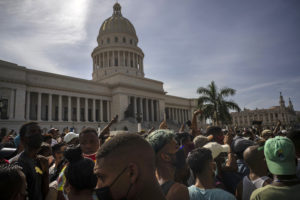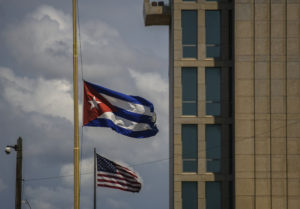WOLA’s Marguerite Jiménez Analyzes What a Miguel Díaz-Canel Presidency Means for Cuba and the U.S.
With President Raúl Castro slated to step down on April 19 and First Vice President Miguel Díaz-Canel slated to take his place, for the first time in nearly 60 years, Cuba is about to enter a new era. In a Foreign Affairs piece titled “Cuba After the Castros: Washington Should Be Engaging the Island’s New President,” WOLA’s Marguerite Jiménez sheds light on the leadership change and advocates for U.S. engagement at this critical moment.
Jiménez explains that Díaz-Canel’s performance will be measured by his ability to deliver promises of reform, more responsive government, expanded access to information, improvements in quality of life and greater opportunities for the country’s youth. She argues that the U.S. – and other external actors – should support the reform process underway on the island rather than making reforms more politically risky by embracing more antagonistic policies.
As the U.S. government moves forward with the short-sighted decision to maintaining minimum staffing levels at the U.S. Embassy in Havana, citing concerns over health incidents –the so-called “sonic attacks” –Jiménez argues in favor of increased engagement with Cuba, not less, at this historical moment. As she explains, reduced embassy presence limits the U.S. government’s ability to gather on-the-ground information about Cuba’s leadership change, and also casts a pall on U.S.-Cuba cooperation in law enforcement, counternarcotics, human trafficking, and environmental issues.


